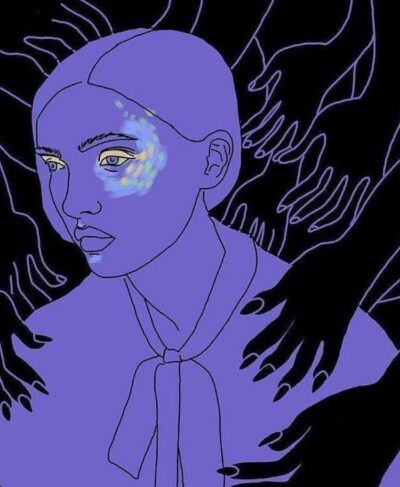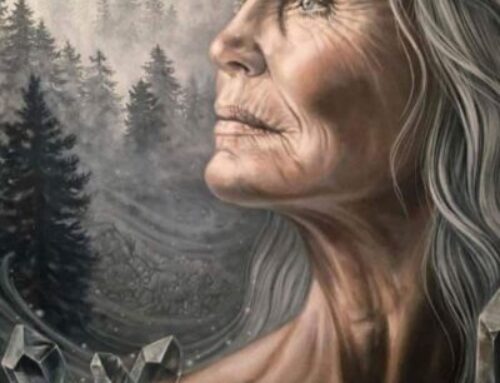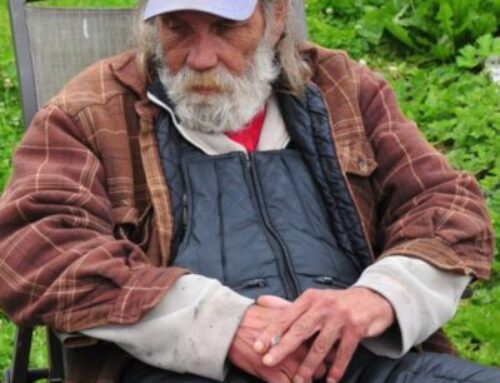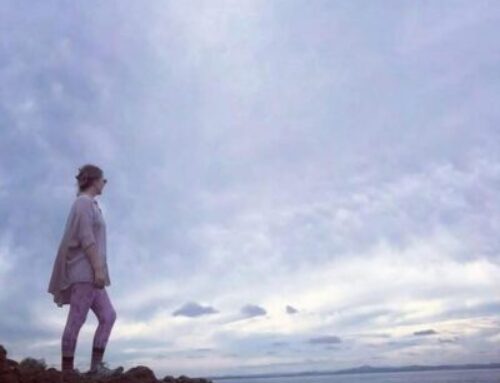I was 23 years old when, on July 5, 1976, my life cracked open on a stretch of Wilshire Boulevard in Los Angeles. The police called it luck that I’d survived—alive, and mostly in one piece.
I’ve come to think of it differently.
Carol, a friend from the East Coast serving in the Navy, was on leave in California. She’d never been to Disneyland, so we planned a trip.
On July 1, we left San Jose in my green-and-white ’73 VW van—curtains, tiny sink, mattress in the back, storage boxes tucked neatly under the bench.
We packed a cooler with drinks and snacks, tossed in our stash of pot and pipes, and stopped for 25 artichokes she was bringing to her aunt.
We stayed with her aunt—who had 18 cats—and on July 4th, spent the day at Disneyland.
The fireworks that night were spectacular. Around midnight, we headed out, stopping at Taco Bell.
I suggested sleeping there—I was exhausted—but Carol insisted she could make the two-hour drive to our campground. The night felt uneasy. The hum of the tires had a restless edge.
I leaned back, trying to settle, when I caught it: the faint scent of my mother’s perfume.
It made no sense, but it was unmistakable.
Moments later, I felt her there—cool air against my neck, steady hands lifting me from the seat, pulling me back. And then—impact.
Carol had fallen asleep at the wheel and ran us head-on into a parked car.
A deafening crack of metal folding into metal. The van lurched, crumpled, and in an instant, the world slowed. Glass floated like frozen stars, headlights smeared into pale streaks, and everything fell into a cold, hollow silence. Then the smoke came—sharp and acrid—snapping me back.
The front of the van had collapsed around my legs. I couldn’t move. I didn’t know what had happened, only that my legs weren’t working and I didn’t want to burn.
The station wagon she struck belonged to a man inside a nearby bar. The violent echo of the crash pulled people out into the street, and one of them led Carol in from where she’d been drifting aimlessly under the streetlights—her blonde hair matted with blood from the broken nose she’d suffered when her face hit the steering wheel.
A siren wailed in the distance. Red and blue lights strobed across buildings. Police arrived first, then EMTs with the jaws of life. The van groaned as they cut it open, vibrations echoing through my legs. Carol stood to the side, arms crossed, not meeting my eyes.
Finally, the pressure eased. They slid me onto a backboard, and the night air hit my face—cool, laced with the faint scent of the ocean.
At the hospital, the chaos swallowed me—fluorescent lights, overlapping voices, the relentless beep of machines. A nurse’s cool hand on my shoulder cut through it: “You’re safe. We’re taking care of you.”
When the doctor came, he called it a miracle—no fractures, just bruised, swollen feet with some minor cuts, a mild concussion, and no internal bleeding.
“You’re lucky,” he said. “If you hadn’t been lifted up and back, you likely would have lost one or both legs.”
It wasn’t luck—it was something else entirely.
In the morning, two police officers stood at the foot of my bed, their presence sharp and out of place in the quiet room. A ripple of unease went through me, quickening my breath.
My throat was dry, my head still heavy from the concussion, and I could feel my pulse thudding in my ears.
One officer stepped closer, his voice steady but gentle, asking if I had any family nearby. I swallowed hard before answering, my voice sounding smaller than I intended.
“No… I’m traveling with a friend. I live in San Jose.”
Saying it out loud made me suddenly aware of how far from home I was—and how alone I felt in that moment.
The officer exchanged a glance with his partner before speaking again.
“We have your statement from the scene, but we need to ask a few more questions about the accident.”
He hesitated, then added, “Your van has been towed. From what we saw out there, you’re lucky to be alive.”
His words landed like a physical weight. My mind flashed back to the cold, unseen hands pulling me back in the van, to the sickening sound of metal crushing in slow motion.
I finally asked the question I’d been carrying since the crash. “What about Carol?”
“She’s okay,” the second officer said. “Broken nose, a few cuts and bruises, but nothing life-threatening.”
I let out a slow breath I didn’t realize I’d been holding.
Relief came—but it was layered, tangled with something heavier I couldn’t quite name.
Carol was alive. We both were. And yet, the space between those facts and how I felt about them was a place I wasn’t ready to look at just yet. I called my boyfriend, Blake, back home.
The moment he heard my voice, he didn’t waste time asking questions—he just arranged for a plane ticket so I could be home by that afternoon.
I’d be on crutches, but he promised he’d be waiting for me at the airport.
Carol made her call, booking a flight back to the East Coast.
There was no conversation between us about the crash—just the quiet business of leaving.
Before we went our separate ways, the police offered to take us to what was left of the van.
I stood frozen, my gaze tracing every mangled curve of metal, every shard of glass still clinging stubbornly to the frame. The green-and-white paint I knew so well was gouged and peeling, as if the van had been chewed up and spit out.
My chest tightened, and suddenly the air felt too thin. My grip on the crutches slipped, my balance tipping as the world swayed.
A single thought rose through the haze, sharp and impossible: How did we survive this?
We salvaged what we could.
The bag of pot and pipes swayed from the seat; we ignored it.
The officer shut the door with a heavy metallic thud, and it felt like closing a chapter I hadn’t yet read to the end. We climbed into the back of the police car, the vinyl seats hot against my legs. No one spoke during the drive. Outside, the city passed in quick, ordinary snapshots—people walking dogs, storefronts opening for the day, cars idling at stoplights—as if the night before hadn’t changed a thing.
But for me, everything had. At the terminal, Blake was already waiting. The moment I saw him, weaving through the crowd toward me, the noise of the airport seemed to fade.
When he reached me, he didn’t say a word—he just wrapped me in his arms, crutches and all.
For the first time since the crash, I felt my body let go.
Those two months at home on crutches tested me in ways I’d never imagined. Our apartment was on the third floor, and every flight of stairs felt like an impossible climb.
I couldn’t carry so much as a cup of coffee without help, and every daily task depended on the kindness—and sometimes the patience—of my roommate and Blake, who lived on the second floor. It was humbling, stripping away the independence I’d always relied on. But little by little, I learned to ask for what I needed, to accept help without shame, and to find small victories in simply making it through each day.
I still remember the perfume, the cool air, the unseen hands pulling me back.
Whether it was luck, grace, or my mother herself, I walked—hobbled—away with one truth I’ve never forgotten: sometimes we are carried, even when we don’t realize it.








Leave A Comment
You must be logged in to post a comment.